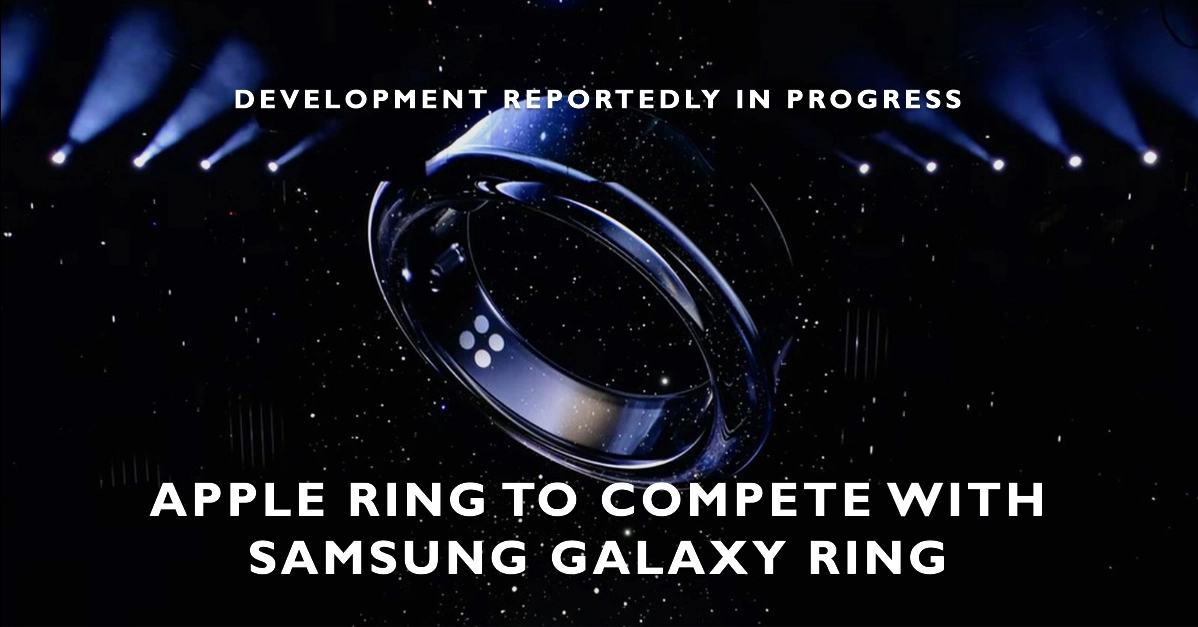Apple, the tech giant known for its innovative products, is rumored to be secretly developing a smart ring. Industry sources suggest the Apple Ring could soon emerge as a direct competitor to Samsung’s highly anticipated Galaxy Ring. This potential move by Apple signals a new direction within the rapidly growing wearable technology market.
If the rumors prove true, the Apple Ring promises to revolutionize how users interact with their devices and monitor their health.
Rumor Has It
Wearable tech is transforming the way we live, work, and monitor our well-being. Smartwatches have become mainstream, and now smart rings are poised to become the next big trend. Apple has a history of entering established markets and redefining them with its focus on design and intuitive user experiences.
Reports suggest that Apple is working on its own smart ring, potentially setting the stage for a fierce rivalry with the upcoming Samsung Galaxy Ring.
Apple’s History with Wearable Devices
Apple has been at the forefront of wearable technology for years. Its Apple Watch is one of the most popular smartwatches in the world, offering features like fitness tracking, notifications, and mobile payments.
Apple’s AirPods have also seen massive success, proving the company’s dedication to creating innovative wearable devices. With this track record, it’s not surprising that Apple could be looking to expand its wearable family with a smart ring.
Potential Apple Ring Features
Although specific details are still unknown, the Apple Ring is likely to offer a range of cutting-edge features. Here’s what we might expect, based on Apple’s expertise and rumored patents:
- Health Tracking: Advanced sensors within the Apple Ring could track metrics such as heart rate, blood oxygen levels, sleep patterns, and possibly even blood glucose.
- Seamless Integration: The Apple Ring is expected to work in tandem with other Apple devices like the iPhone, iPad, and Apple Watch. This could lead to a unified control center for your devices.
- Gesture Control: Patented technology suggests the Apple Ring might support hand gestures, allowing you to control apps and devices remotely with simple finger movements.
- Notifications: Expect discreet notifications on the ring itself, offering a more subtle way to stay connected than glances at your phone or watch.
- Design: True to Apple’s form, we anticipate a sleek, minimalist design for its smart ring, potentially with various colors and material options for customization.
Samsung’s Lead with the Galaxy Ring
Samsung is reportedly aiming to release its Galaxy Ring later this year. This puts pressure on Apple to accelerate its development if it intends to be a true competitor.
The Galaxy Ring is rumored to feature health sensors and could possibly measure blood pressure. It’s likely Samsung will focus on smooth interaction with its Galaxy smartphones and ecosystem.
Smart Rings: The Future of Wearables?
Smart rings offer several advantages over smartwatches. Their smaller size makes them more discreet and comfortable for all-day wear, appealing to those who find smartwatches too bulky.
Due to their position on the finger, some believe rings can potentially gather more accurate health data. For people who dislike the look or feel of a watch, rings provide a stylish alternative.
Challenges and Implications
While the future seems bright for smart rings, there are challenges ahead. Battery life in such a small device is a primary concern.
Additionally, user interfaces will need refining to ensure intuitive control using only a finger. If Apple and Samsung can overcome these hurdles, smart rings could replace smartwatches as the must-have wearable device.
Overall Thoughts
The potential release of an Apple Ring marks an exciting time in the tech world. Apple’s reputation for quality and user-friendliness could shake up the fledgling smart ring market.
Whether you love smartwatches or are looking for something more subtle, the impending rivalry between Apple and Samsung in this space is sure to bring exciting advancements in wearable technology.
